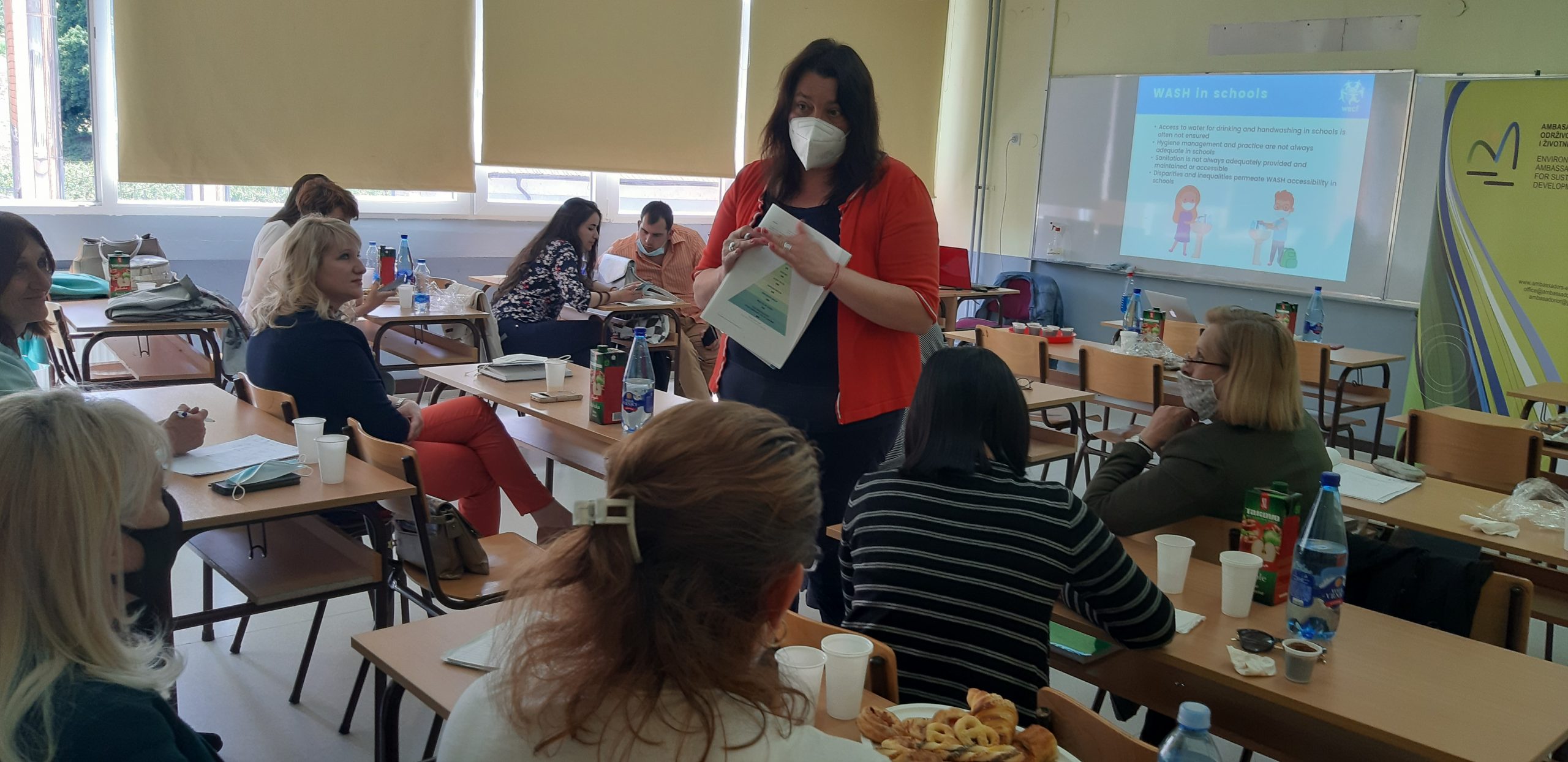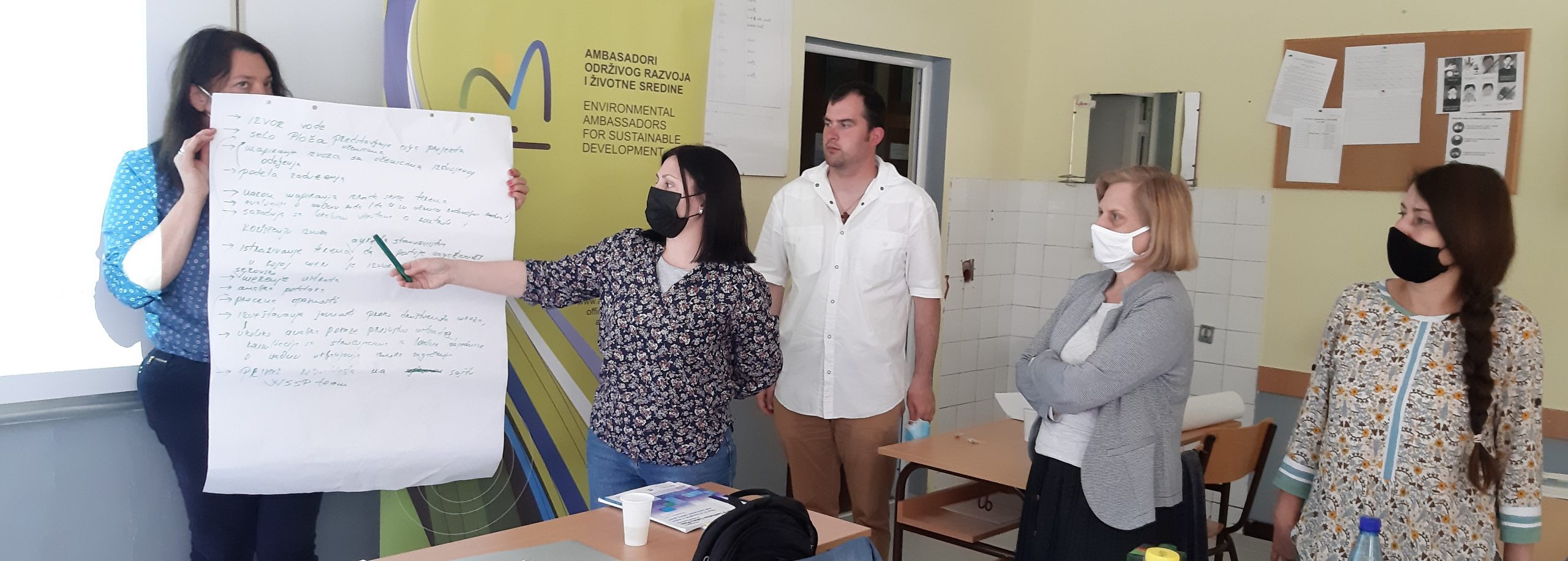Within the project “ Water and Sanitation Safety Planning in the Balkan Region: Albania, North Macedonia, Romania and Serbia (WatSanPlan), FKZ 16EXI4004A, Förderprogramm „Exportinitiative grüner und nachhaltiger (Umwelt-) Infrastruktur“ BMU, the first training for teachers of the Eco-school was held in Aleksandrovac. During the two-day training, teachers from primary schools, secondary school and educators from pre-school were introduced to the possibilities provided by the development of a plan for water safety and sanitation, with special reference to the situation in rural communities. In addition to the theoretical work presented by Bistra Mihajlova, a project coordinator on behalf of project leading organization “Women engage for a common future” (WECF) from Germany, participants had the opportunity to exchange their own experiences related to water safety and sanitation in rural areas, where there are many field-departments of Aleksandrovac schools. The topic of menstrual hygiene and how girls and young women are educated in the current conditions was also raised, with general comments that this topic is still taboo in our area and that little attention is generally paid to this topic, through regular curricular and extracurricular activities.
Representatives of one of the partners in the project from North Macedonia, “Journalists for Human Rights”, Nataša Dokovska and Aleksandra, were guest lecturers, who shared their experiences in many years of struggle related to water safety, sanitation, menstrual hygiene and menstrual health. According to research that has been conducted in North Macedonia, Nataša Dokovska pointed out that almost 30% of women in this country cannot afford menstrual products. In North Macedonia, as it is situation in Serbia, they face insufficient education on this topic and an unwillingness to accept it as something that is biologically normal and impossible to pretend not to exist. Among other things, their association advocates that menstrual hygiene be spoken in a gender-neutral language, instead of “products for female hygiene “to be named as “menstrual products”. It is a problem in general that almost 80% of girls know about the menstrual cycle in communication with friends or older sisters in the family, and less often from their mothers or through the education system. The biggest problem in schools is practically that there are no basic sanitary conditions to help girls and women during the menstrual period, so, according to research „Journalist for Human Rights“ realized, in rural areas girls are forced to stay at home during menstruation and to miss classes.
Discussion among teachers from the Eco-schools in Aleksandrovac, there are no such bad experiences in this municipality. However, the positive sign is that through the biology curriculum for the 6th grade, the topic of the menstrual cycle is dealt with, in which boys and girls participate equally.
So far, no more detailed research on menstrual health and menstrual hygiene has been done in Serbia, except sporadic articles in the media and initiatives from the University that can be found. Under this WatSanPlan project, the initial research related to menstrual hygiene and menstrual health will be realized through the Eco-schools program during the school year 2021/2022. The results will show a general observation of water safety, sanitation and menstrual hygiene, which will enable further research and launch advocacy campaigns towards decision makers, primarily related to the availability of menstrual products for free in selected Eco-schools.
The next activity on the project will be training for Eco-schools students on water safety and sanitation in rural communities.
The project “Water and Sanitation Safety Planning in the Balkan Region: Albania, North Macedonia, Romania and Serbia (WatSanPlan)” is supported by the German Federal Ministry for the Environment, Nature Conservation, Building and Nuclear Safety and the European Union. The project is managed by the international organization “Women Engage for a Common Future”. In addition to the Environmental Ambassadors for Sustainable Development from Serbia, the project also includes civil society organizations from North Macedonia, Albania and Romania.





